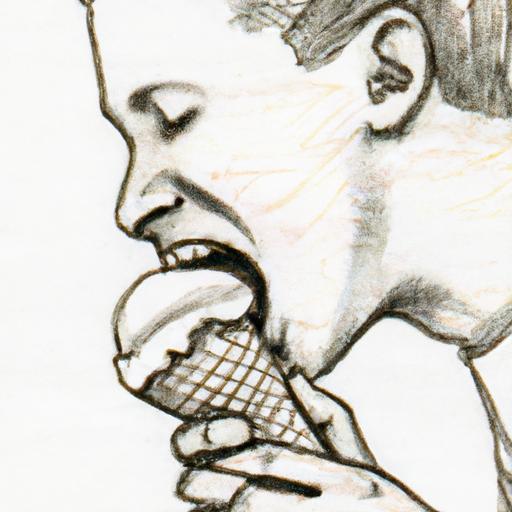Tooth sensitivity can be a frustrating and uncomfortable dental condition that affects millions of people worldwide. Whether it's a sharp pain radiating through the teeth when consuming hot or cold foods and beverages, or a general sensitivity to pressure, this condition can significantly impact one's quality of life. However, with the right knowledge and treatment options, tooth sensitivity can be effectively managed and even prevented. In this article, we will explore the causes, symptoms, and diagnosis of tooth sensitivity, as well as provide expert advice on effective treatment options and preventative measures. Whether you're experiencing tooth sensitivity yourself or looking to enhance your dental knowledge, this comprehensive guide will equip you with the necessary information to address this common oral health concern.
1. "Understanding Tooth Sensitivity: Causes, Symptoms, and Diagnosis"
Tooth sensitivity, also known as dentin hypersensitivity, is a common dental problem that affects a significant portion of the population. It is characterized by a sharp and temporary pain or discomfort experienced when the teeth come into contact with certain stimuli such as hot or cold food and drinks, sweet or acidic substances, or even when brushing and flossing. Understanding the causes, symptoms, and diagnosis of tooth sensitivity is crucial for effective treatment.
One of the primary causes of tooth sensitivity is the exposure of dentin, the layer beneath the tooth enamel. Dentin contains tiny tubules that lead to nerve endings, and when dentin is exposed, these tubules allow external stimuli to reach the nerves, triggering pain or sensitivity. Enamel erosion or gum recession can lead to dentin exposure, making the teeth more prone to sensitivity.
Symptoms of tooth sensitivity may vary from person to person, but the most common complaint is a sudden sharp pain or discomfort upon contact with triggering substances. The pain can be intense and may subside quickly, but it can also linger for a while. Individuals with tooth sensitivity often avoid certain foods and activities to prevent triggering the pain, which can impact their quality of life.
Diagnosing tooth sensitivity involves a comprehensive dental examination. Dentists will review the patient's medical history, inquire about their symptoms, and perform a thorough oral examination. They may use dental instruments to test the sensitivity levels of the teeth and identify the specific triggers. X
2. "Effective Treatment Options for Tooth Sensitivity: From At-Home Remedies to Professional Dental Procedures"
Tooth sensitivity can be a frustrating and uncomfortable condition for many individuals. Fortunately, there are various treatment options available to help alleviate the symptoms and provide relief. From simple at-home remedies to professional dental procedures, the range of treatment options ensures that individuals can find a solution that suits their needs and helps them regain their oral comfort.
1. At-Home Remedies:
For mild cases of tooth sensitivity, there are several simple remedies that can be tried at home. These include using desensitizing toothpaste, which contains compounds that help block pain sensations. Applying a thin layer of fluoride gel or varnish to the affected teeth can also help strengthen the enamel and reduce sensitivity. Additionally, practicing good oral hygiene, such as brushing gently with a soft-bristled toothbrush and using a mouthwash specifically formulated for sensitive teeth, can contribute to minimizing discomfort.
2. Over-the-Counter Products:
Pharmacies and supermarkets offer a variety of over-the-counter products designed to alleviate tooth sensitivity. These include toothpaste, mouth rinses, and gels containing ingredients like potassium nitrate or strontium chloride. These substances work by forming a protective barrier over the exposed dentin, reducing sensitivity to hot, cold, or acidic substances. It is important to follow the instructions provided with these products and consult a dentist if the sensitivity persists or worsens.
3. Dental Procedures:
If at-home remedies and over-the-counter products do not provide sufficient relief
3. "Preventing and Managing Tooth Sensitivity: Expert Tips and Advice"
Tooth sensitivity can be a common and uncomfortable dental issue that affects many individuals. The good news is that there are preventive measures and management techniques available to help alleviate the symptoms and protect your teeth. Here are some expert tips and advice to help prevent and manage tooth sensitivity:
1. Maintain good oral hygiene: Practicing proper oral hygiene is the first step in preventing tooth sensitivity. Brush your teeth at least twice a day using a soft-bristled toothbrush and fluoride toothpaste. Make sure to brush gently and in a circular motion to avoid damaging your tooth enamel. Additionally, floss daily to remove plaque and food particles from between your teeth and along the gumline.
2. Use desensitizing toothpaste: Consider using a desensitizing toothpaste specifically designed for sensitive teeth. These toothpastes contain ingredients that help to block nerve signals and reduce sensitivity over time. Use the toothpaste regularly as instructed by your dentist for maximum effectiveness.
3. Avoid acidic and abrasive foods: Acidic foods and drinks such as citrus fruits, tomatoes, pickles, and carbonated beverages can erode tooth enamel, making your teeth more susceptible to sensitivity. Similarly, abrasive foods like hard candies, ice, and crunchy snacks can cause enamel wear. Limit your intake of these foods and drinks, or if consumed, rinse your mouth with water afterward to help neutralize acid. Additionally, be cautious when consuming hot or cold foods and drinks, as extreme temperatures can

